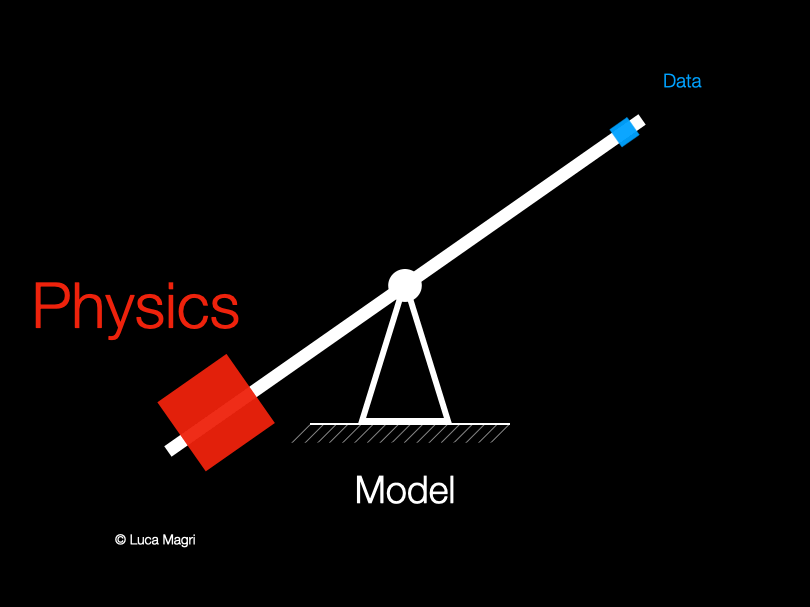What is scientific machine learning?
|
Much more than hundred trillion bytes of data has been created in the world while reading this sentence. Central to big data is machine learning, which is an automated way of transforming information into empirical knowledge. Machine learning techniques have been applied to some physical problems, such as fluid mechanics, with success, but there are still three big open questions: Do machine learning algorithms scale to engineering configurations? (Are they robust?); Can we gain physical insight into the solutions? (Are they interpretable?); Can we extrapolate knowledge to other configurations, such as multi-physics problems? (Are they generalizable?).
Physical modelling has been historically enabled by both empirical approaches and physical principles. Machine learning models may not be interpretable and robust, but they excel at empirical modelling. On the other hand, physical principles are governed by equations that do not adaptively change, but they are interpretable and robust. This project will combine physical principles and empirical modelling into a unified approach: physics-constrained adaptive learning for multi-physics optimization of unsteady, unpredictable and uncertain systems. The learned solutions will not violate physical constraints.
The technical objectives are to combine physical principles with machine learning; design adaptive multi-physics models by on-the-fly data assimilation; optimize turbulent flows; quantify the uncertainty; and develop a code that wraps around existing simulation software and experiments. This framework will be applied to maximize energy harvesting from aeroelastic systems to produce clean energy; optimize stable aeroengines with low emissions; and reconstruct high-resolution flow fields from low-resolution experimental measurements. We will rigorously interlace chaos theory, Bayesian inference and artificial intelligence. This project will benefit industries that work with multi-physics flows and artificial intelligence companies.
Physical modelling has been historically enabled by both empirical approaches and physical principles. Machine learning models may not be interpretable and robust, but they excel at empirical modelling. On the other hand, physical principles are governed by equations that do not adaptively change, but they are interpretable and robust. This project will combine physical principles and empirical modelling into a unified approach: physics-constrained adaptive learning for multi-physics optimization of unsteady, unpredictable and uncertain systems. The learned solutions will not violate physical constraints.
The technical objectives are to combine physical principles with machine learning; design adaptive multi-physics models by on-the-fly data assimilation; optimize turbulent flows; quantify the uncertainty; and develop a code that wraps around existing simulation software and experiments. This framework will be applied to maximize energy harvesting from aeroelastic systems to produce clean energy; optimize stable aeroengines with low emissions; and reconstruct high-resolution flow fields from low-resolution experimental measurements. We will rigorously interlace chaos theory, Bayesian inference and artificial intelligence. This project will benefit industries that work with multi-physics flows and artificial intelligence companies.
